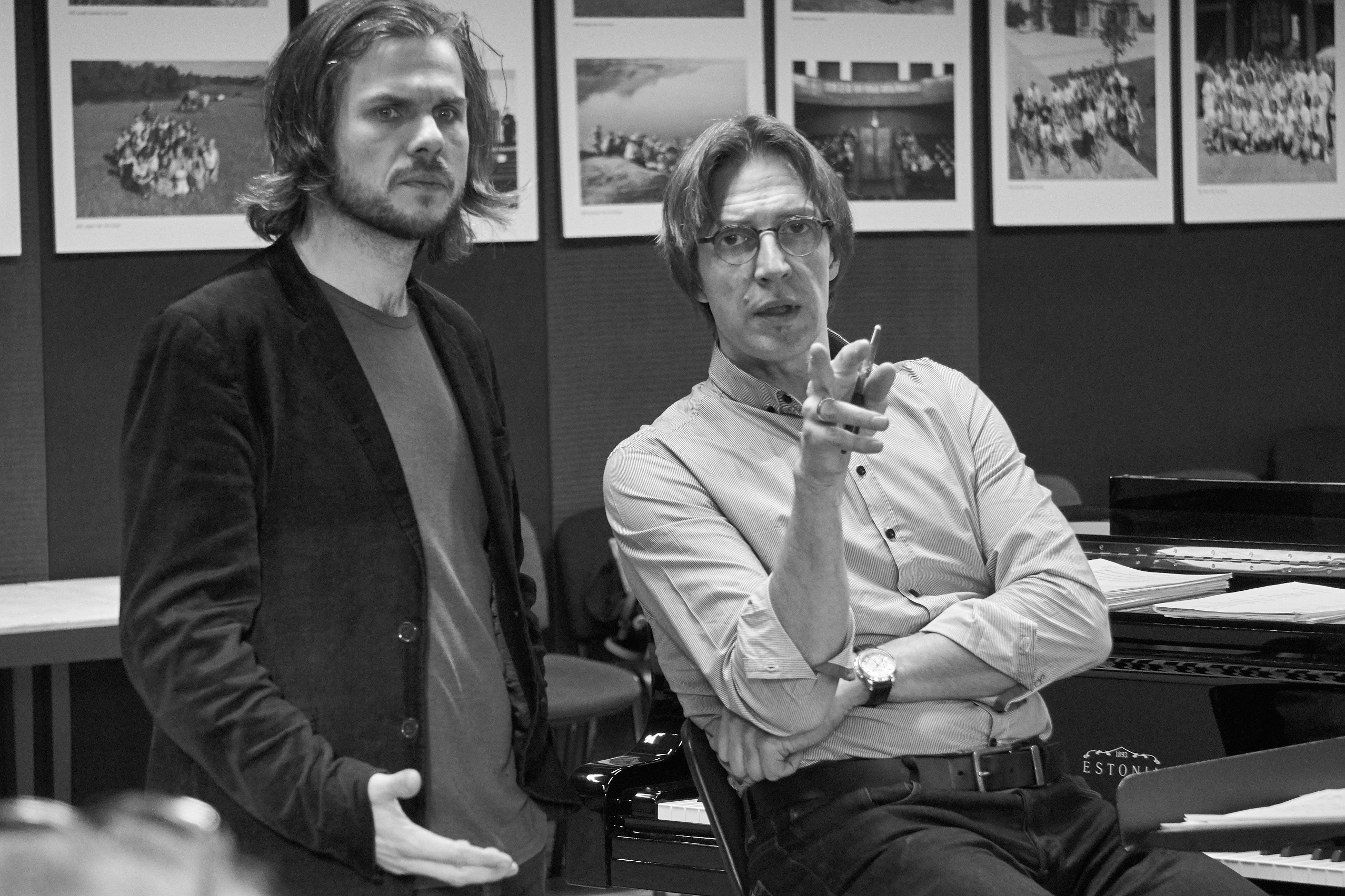
Ülo Krigul and Kaspars Putniņš. Photo by Anneli Ivaste
The Estonian Philharmonic Chamber Choir under Kaspars Putniņš will give concerts in Estonia, Finland, South Korea, and Hong Kong during November. The concerts will feature the world premiere by Ülo Krigul as well as music by Arvo Pärt, Veljo Tormis, Alfred Schnittke, Johannes Brahms, and Wolfgang Amadeus Mozart.
On November 12 and 13, the EPCC will perform at the St Paul’s Church in Tartu and St Nicholas’ Church in Tallinn. The programme consists of Arvo Pärt’s „Sieben Magnificat-Antifonen“, Alfred Schnittke’s „Concerto for Choir“ and the world premiere of Ülo Krigul’s „Aga vaata aina üles” („But Look Ever Upwards“). Krigul’s new piece is based on the texts by the Estonian poet Uku Masing and is a commission by the EPCC and Kaspars Putniņš.
On November 16, the EPCC will attend the festival Lux Musicae held in Siuntio, Finland. Lux Musicae festival combines new and old music and is known for its unique concert venues. EPCC’s concert at the Siuntio Church features Johannes Brahms’s „Warum ist das Licht gegeben?“ Op. 74, Arvo Pärt’s „Sieben Magnificat-Antiphonen“, and Alfred Schnittke’s Choir Concerto.
On November 19, the concert at the Seoul Arts Center in Seoul, South Korea features Arvo Pärt’s „Solfeggio“, „Summa“, „Magnificat“, „Zwei Beter“, „The Woman With Alabaster Box“, „Nunc dimittis“, „Dopo la vittoria“, „Fratres“, and „Te Deum” which will be performed together with the Korean Chamber Orchestra.
On November 30, the EPCC and Kaspars Putniņš will perform at the Hong Kong City Hall in Hong Kong, China together with the Hong Kong Sinfonietta. The programme consists of Arvo Pärt’s „Fratres“ and Hong Kongese premiere of „Adam’s Lament“, Veljo Tormis’s „Curse Upon Iron“, and Wolfgang Amadeus Mozart’s Requiem. The vocal soloists are Maria Valdmaa (soprano), Marianne Pärna (alto), Raul Mikson (tenor), Olari Viikholm (bass), and Uku Joller (bass).
See also:
Estonian Philharmonic Chamber Choir
